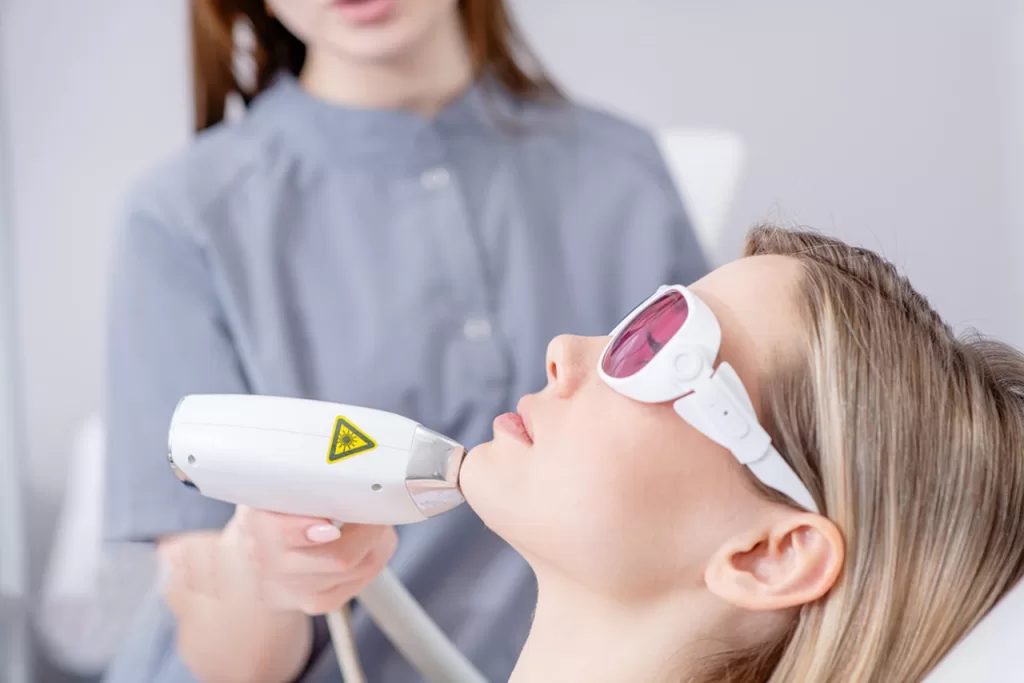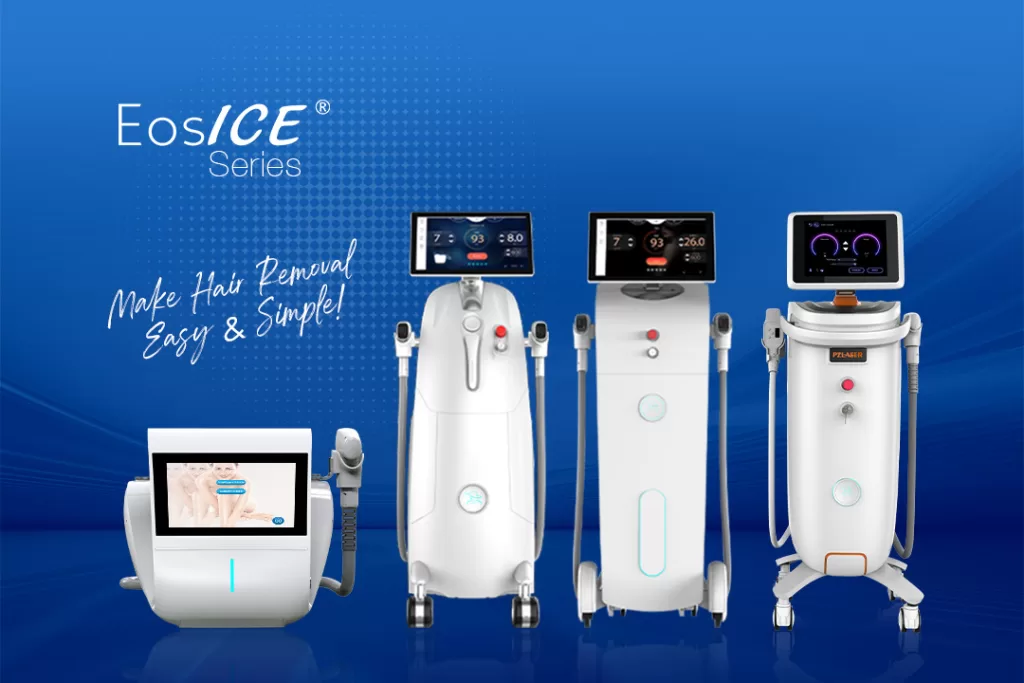
Introduction
Laser hair removal has become one of the most sought-after cosmetic procedures worldwide. The appeal is undeniable—smooth, hair-free skin without needing constant shaving or waxing. However, alongside its popularity, there have been lingering concerns and myths, one of the most pressing being: “Does laser hair removal cause cancer?”
Such fears are not uncommon, as any procedure involving advanced technology often raises questions about long-term health implications. This blog delves into the science behind laser hair removal, addresses cancer concerns, and highlights expert opinions while providing practical tips for minimizing risks. Whether you are a prospective client or a curious skeptic, this guide will provide clarity and confidence.
How Does Laser Hair Removal Work?
Before finding out the relation between laser hair removal and cancer, we need to understand how laser hair removal works. Laser hair removal targets and destroys hair follicles, thereby inhibiting regrowth. Its popularity stems from its precision, effectiveness, and long-term benefits. But how does it actually work?
The Science of Laser Hair Removal
Laser hair removal is a cosmetic procedure that uses a focused laser beam that emits non-ionizing radiation. This light is absorbed by the pigment in the hair follicles, which converts it into heat. The heat damages the follicle, preventing further hair growth without harming the surrounding skin.
Key Benefits of Laser Hair Removal
- Precision: The laser targets only the dark, coarse hairs, leaving the surrounding skin unaffected.
- Speed: Each laser pulse treats multiple hair follicles in milliseconds, making it efficient for larger treatment areas like the back, legs, or arms.
- Long-Term Results: After a series of sessions, most clients experience a significant reduction in hair growth.
- Non-Invasive Nature:
Unlike other methods like waxing or electrolysis, laser hair removal is non-invasive, meaning there is no break in the skin. This minimizes risks of infection and other complications, making it a preferred choice for many.
Does Laser Hair Removal Cause Cancer?
For a long time, there has been a widespread concern that laser hair removal might cause skin cancer. In the scientific community, the question of whether laser hair removal increases the risk of cancer has also been a topic of debate among medical experts and researchers. However, this belief is entirely unfounded. There is no scientific evidence to support the claim that laser hair removal causes skin cancer.
This misconception likely stems from misunderstandings of studies exploring the relationship between laser hair removal and skin cancer. Many of these studies were later debunked or retracted due to methodological flaws or misinterpretation of findings. The laser hair removal process specifically targets hair follicles using controlled wavelengths of light, without emitting the harmful ultraviolet radiation typically associated with skin cancer risks. To address this, it’s essential to understand the type of radiation used in the procedure.
What Is Non-Ionizing Radiation?
Laser hair removal employs non-ionizing radiation, which is low-energy and incapable of altering DNA. Unlike ionizing radiation, such as X-rays, non-ionizing radiation does not penetrate deeply enough to damage cellular structures or cause mutations.
Scientific Evidence Debunking the Myth
Scientific studies like those referenced in PubMed have consistently found no link between laser hair removal and cancer. The American Cancer Society (ACS) and American Academy of Dermatology (AAD) have stated that light used in laser hair removal only penetrates the skin’s surface and does not affect the deeper layers of skin where skin cancer originates. It's because non-ionizing radiation poses no risk of causing cancer.
Safe When Performed Correctly
Procedures carried out by certified professionals using FDA-approved devices ensure that risks remain negligible. The misconception that “laser hair removal causes cancer” often stems from misinformation rather than scientific evidence.
Expert Opinions on Laser Hair Removal and Cancer Risks
The famous experts such as dermatologists, oncologists, and laser treatment specialists overwhelmingly agree that there is no credible evidence that laser hair removal increases cancer risk. They emphasize that there is an extremely low risk of developing skin cancer from laser hair removal. The energy levels used in laser hair removal treatments are carefully calibrated, and essentially, the laser emits a concentrated beam of non-ionizing light to target the hair follicles for simple destruction without causing significant damage to surrounding skin cells. Additionally, the light and heat exposure during laser hair removal is short and localized, further minimizing any potential risk of cancer development.
Dermatologists' Perspectives
Leading dermatologists explain that the lasers used in hair removal penetrate only the uppermost layers of the skin. They do not reach deeper tissues, organs, or blood vessels, which eliminates the possibility of systemic effects.
Oncologists' Statements
Oncologists highlight that the energy levels of lasers used in cosmetic procedures are far too low to cause cellular changes. Their input reinforces the safety of the procedure.
Endorsements from Regulatory Bodies
Organizations like the FDA and the American Academy of Dermatology have approved laser hair removal for cosmetic use, further validating its safety.
Common Side Effects and Risks of Laser Hair Removal
While laser hair removal is considered safe, like any cosmetic procedure, it comes with potential side effects. It’s crucial to differentiate between temporary effects and serious risks.
Temporary Side Effects:
- Skin Irritation: Mild redness, swelling, or itching may occur immediately after treatment. These symptoms typically resolve within hours.
- Hyperpigmentation or Hypopigmentation: Some individuals may experience temporary changes in skin tone, particularly those with darker skin types or a history of sun exposure.
- Sensitivity: Treated areas may feel slightly tender or warm to the touch, akin to a mild sunburn.
Rare but Manageable Risks:
- Burns or Blisters: These are extremely rare and usually result from improper use of the laser.
- Scarring: Rare and typically associated with improper aftercare.
Debunking Misconceptions:
- Does Laser Hair Removal Cause Infertility?
No. The lasers do not penetrate deep enough to affect reproductive organs, making this concern unfounded. - Side Effects of Laser Hair Removal on Bikini Area:
Even in sensitive areas, the procedure is safe when performed by trained professionals.
How to Minimize the Risks of Laser Hair Removal
Although the risks are minimal, taking certain precautions can further enhance safety and ensure the best results.
Choose a Certified Practitioner
It‘s necessary to always select a licensed and experienced professional. Try to avoid clinics or technicians that lack proper certification.
Avoid Sun Exposure
Protect your skin from UV rays before and after the procedure to reduce the likelihood of burns or pigmentation changes.
Discuss Skin Type
During the consultation, ensure your practitioner evaluates your skin type and medical history to determine the most suitable settings for the laser treatment.
Follow Aftercare Instructions
Use soothing creams or aloe vera as recommended. Avoid harsh exfoliants, saunas, or hot showers for at least 24 hours post-treatment.
Ensuring Safe and Effective Laser Hair Removal With EosICE®

When it comes to safety and efficacy, the choice of equipment is paramount. The EosICE® laser hair removal system sets a new industry standard with its advanced design. Featuring state-of-the-art cooling technology, EosICE® ensures a virtually pain-free experience by significantly reducing heat-related risks such as burns or irritation. Its customizable design includes four distinct wavelengths, making it suitable for all skin types and even the most sensitive areas, such as the face and bikini line.
Driven by PZLASER’s dedication to innovation, EosICE® consistently delivers reliable and effective results, earning the trust of professionals and clients worldwide. For those seeking a premium laser hair removal solution, EosICE® diode laser machines stand as a top choice.
Conclusion
The question “Does laser hair removal cause cancer?” has been definitively answered by scientific research and expert consensus. The non-ionizing radiation used in these procedures poses no threat of DNA damage or cancer development.
With its impressive safety profile, laser hair removal remains one of the most popular and effective hair removal methods. By choosing experienced practitioners and advanced systems like EosICE®, clients can enjoy long-term results with minimal risk. Explore cutting-edge technology at PZLASER and bloom your beauty business today.






